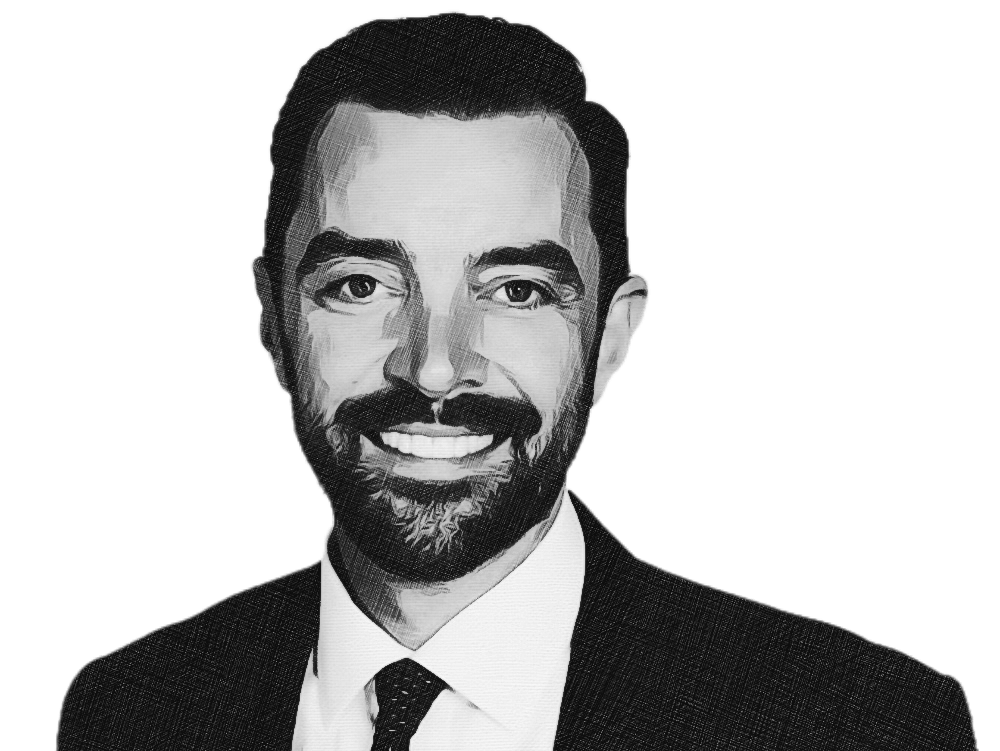Q&A: Fostering Trust
Andrew Barber — September 23, 2023
America is getting older.
The 2020 Census reported that 56 million people, roughly 17 percent of the US population, is over the age of 65. The Department of Health and Human Services now expects that number to rise to over 80 million by 2040.
As the elderly population grows, more American families will find themselves caring for loved ones with diminished capacities. In addition to navigating late life care and medical issues, many of these families will also face financial decisions when their loved ones can no longer act independently.
Vance Barse is the founder of Dallas-based Your Dedicated Fiduciary, a wealth management firm in the Commonwealth Financial Network.

Barse has decades of industry experience focused on investment management and estate planning.
Gravity Exists spoke with Barse about how his firm helps clients and their families prepare for late-life financial management, particularly how to plan for a time when the client can no longer act independently.
Listen to the interview:
Gravity Exists — Vance, thanks so much for joining us today.
Vance Barse — It’s a pleasure to be here. And I’m looking forward to the conversation.
GE — We are inundated with data that tells us that the aging population in the US is growing rapidly. Are you seeing that with your own practice? Are you fielding more inquiries from families who are with elderly loved ones who need additional support and who may not be able to make financial decisions on their own?
Vance Barse — Yes, and absolutely, yes.
Per a recent Forbes article, the baby boomer generation is expected to bequeath more than $68 trillion — that is trillion with a T — in value to their millennial and other adult children. As we, on the heels of COVID, understand the fundamental importance of health and well-being, this is a question that is coming up from more and more folks in the public that are reaching out to us.
You need planning strategies that can help prepare an estate should the matriarch, patriarch, or both undergo some level of DMC, which is an acronym for diminished mental capacity. And I think that as the “great wealth transfer” continues, it is something that practitioners really need to have front of mind to make sure that the defensive strategies that should be employed in an estate to protect mom and dad are in place.
GE — As you navigate these situations, which involve family members, outside advisors, such as attorneys, trustees, do you find that there is a script that can be followed? Or is each situation unique?
Vance Barse — Each family has its own idiosyncrasies and dynamics, and thus, proceeding delicately is paramount. It’s important to first start with building transparency and trust not only with the client but also with the immediate family members.
Interestingly, we are working with three estates right now that are headed by folks who have diminished mental capacity.
[As a planner] you really learn how terrible the human condition can be in two situations. One is divorce. I’ve never been through one, but I’ve seen clients go through them, and it can get very nasty. The second is when you’re anticipating or going through estate administration. So, it’s important to call a family meeting to establish trust and transparency among all family members.
One of the best ways to navigate that is through what’s called a family heritage statement, which is ultimately a document that is sort of the guiding document, if you will, for a family in terms of what are the most important values to generation one, which is typically the grandparent or grandparents; generation two, the adult children; and then tertiary generation three. If each of those generations feels valued and has a voice with respect to the family, it fosters that platform of trust and transparency — both of which are vital when navigating the often murky waters of establishing different types of powers of attorney and making the executive level decisions that are in the best interest of an estate.
We found that starting with foundational estate planning is vital. A large number of families, when they come on board, have a basic will from the 1960 or 70-something, and there have been no additional documents or updates implemented. It’s really important to start from a foundational level and to incorporate key family members in the decision-making process.
GE — You talked about a generational wealth transfer. There’s been a slew of recent studies which have talked about the increasing expense of assisted living and full-care facilities. I would imagine that late-life care for an individual with diminished capacities is significantly more expensive, and that may have an impact in your discussions with the family.
Vance Barse — Very much so. It is often the largest expense in retirement. No one ever wants to think about the need for long-term care, and a quick Google search of the statistics behind who will ultimately need long-term care will show data outlining how important it is to plan for those expenses.
As a practitioner, it’s important to look at the nonqualified, meaning nonretirement assets that are in the estate — whether the estate is $1 million or $20 million or somewhere in between — and retirement assets to really optimize the cash flow to support the family member in need of that care because it can be significantly expensive.
It largely is driven by where in the country you live and the level of care. For example, are you able to do the equivalent of adult supervision? Do you need in-home care? Do you need a nursing home? It depends on the medical condition of the client, but it’s important to optimize how we source the funding to keep tax efficiency in front of mind.
That’s where bringing in generation two and outlining the tax nuances, the cash flow modeling, and so forth can really help serve as a source of union in this time of stress for a family versus a source of disunion and infighting, which, unfortunately, is very common.
GE — Do you think that your role as a financial advisor is aided if there are other family advisors, for instance, legal advisors, who are part of the process? Is it something that you think is best handled as a team effort, or does that create more complication for you from a practice standpoint?
Vance Barse — When clients come on board, we share that for us to bring maximum tangible value, we prefer to serve as the hub of the planning wheel so that we can drive the different tax and planning strategies for which an estate is eligible and work transparently alongside of all of the allied professionals. Whether that’s the CPA or tax advisor, the estate planner, maybe a real estate adviser, or all the above.
Typically, what happens is mom, dad, or both will start to show some level of forgetfulness. Bills aren’t getting paid. That is really a hallmark for Alzheimer’s or some level of diminished mental capacity.
Sometimes, clients have joked about it with us. “Oh, you know, I’m just kind of a little forgetful.” But after a while, once you see a pattern, or if they consistently are missing meetings, it’s really important to reach out to the family.
To do so, we advise clients that they should have what’s called a TCD, or trusted contact directive, on file. That is part of what we call a partnership integration process where when a family comes on board. It is one of the checklist items that we go through, and we say, “Hey, look, while we don’t anticipate any medical events, or diminished mental capacity, or heaven forbid, death happening anytime soon, it’s important to have this on file. If, for any reason, we need to reach out to someone within your trusted circle — whether it’s an allied professional, like your estate planner, a family member, or both, we have the ability to do so.”
So that’s part of our integration process. And thank goodness it has been because to reiterate, we have three families that are headed by folks with DMC and in each one of those cases, that document was vital to allow us to reach out to the family and to the estate planner so that we can engage the different planning strategies that we put in place.
GE — If you have one primary message to families who are planning for this kind of a situation, what would it be?
Vance Barse — When meeting with the client and the family member or members to whom the client really wants to give a voice, it is important to put all the cards on the table.
In one of the aforementioned families, when we were looking at the bank statements, we realized that there was about $3,000 in monthly ATM withdrawals that were happening with an 86-year-old client who had lost their ability to drive two years prior and has no one taking them to the ATM.
“Gee,” I wondered to myself aloud, “what on earth would the client be needing to go to the ATM to take up about $3,000 a month?” And the answer is the client has no need for that. When we brought that to the attention of the client and the immediate family members, we realized that someone in the family had access to the card and was taking money.
It’s important to foster that open architecture so that we can make sure that the estate metaphorically is a nice pretty box with a nice pretty bow on it that can range from looking at the different risk management policies that are in place to making sure that transaction level data is provided to us.
In almost all cases, I tell family clients that it’s important to have a trustee that is not in the family, and it doesn’t have to be a huge corporate trustee. In fact, we often prefer that it’s an independent trustee alongside of whom we can work with.

